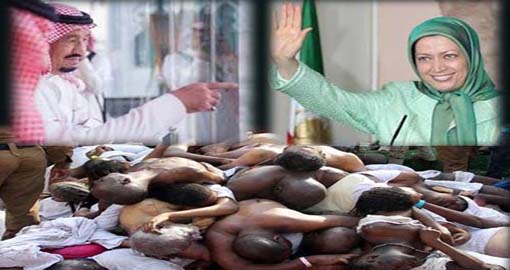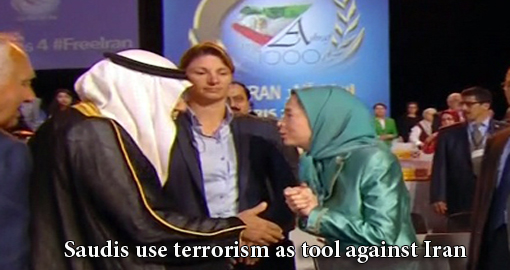Why Did Saudis Decide to Expand Their Relations with Albania?
Although the presence of Islam in the Balkans dates back about eight hundred years ago to the 12th century, Takfiris’ existence in this region is rather a new phenomenon. It relates to the early 90s and the midst of the Bosnian War with the presence of the so-called Afghan Arabs. By the end of the Bosnian War, these Afghan Arabs gained Bosnian citizenship, and Wahhabism, as the central ideology of Takfirism, was promoted in the region by Saudi Arabia.
In recent days, the Saudi and Albanian media have announced the signing of a trade agreement between Saudi Arabia and Albania to develop economic relations. Head of the Saudi delegation, Ahmed al-Khumashi, said about good relations and shared interests between the two countries had and called for the development of economic and investment relations.
In February, Albanian Prime Minister Edi Rama had traveled to Saudi Arabia to meet with Saudi King and sign two agreements and a memorandum of cooperation in the fields of tourism and aviation.
Looking at the history of Riyadh-Tirana relations, one can find that association between the two countries is not a matter of history and dates back to recent years. As there is no significant book nor article on the relations between the two countries and the “Albanian-Saudi relation,” entry is only in Arabic. Interestingly, the content of the mentioned entry is just about the statistical comparison between the two countries is in terms of population, economics, and international organizations in which both countries are members, and there is not the slightest mention of the history of relationships.
There is a serious question that must be asked: why and how the Saudis decided to expand their relations with Albania? Especially with regard that the first and last period which Saudis seriously appeared in the region dates back to the immigration of Saudi and Arab citizens after the end of the Afghanistan war. At the same time, Saudis began a movement to build mosques and Islamic centers in the Balkans in different parts of the Balkans, especially Bosnia and Herzegovina, and many of these immigrants married Muslim and indigenous girls in the region.
In addition, trained Arab Salafi troops, who were bin Laden’s loyalists, gathered in the Balkans in 1993 under cover of the Bosnian War to establish a terrorist network inside European territory based in the Balkans.
By the end of the Bosnian War, major cities in the Balkans had become the center of Salafist extremists; for example, the Novi Pazar town in Sanjak area in Southern Serbia has become a core for Islamic fundamentalism, linked with Al-Qaeda cells. Novi Pazar was the focus of the Islamist attempt to build a land bridge from Albania and Kosovo to Bosnia.
Two decades after the presence of Arab extremists and the Saudi mosque-building movement in the region, which has been associated with the promotion of extremist Wahhabi thoughts, its effects became clear; when thousands of violent militias were deployed to Iraq and Syria to fight alongside the so-called Islamic State of Iraq and al-Sham (ISIS).
Along with ISIS’s seizing power in Iraq and Syria, Albanian citizens were surprised by the large volume of travel by some citizens of this country to the Middle East. Former Albanian Foreign Minister Detmir Bushati had initially said that about 300 Albanian citizens had left this country to join ISIS. In addition, some Imams in Albania used to support ISIS in their speeches.
Interestingly, the ISIS recruitment among Albanians was not limited to Albanian citizens, but it also included Albanians living in Western Europe, especially Germany and Switzerland. An issue that demonstrates to what extent is Albania influenced by imported ideas and how much is it capable of attracting such violent militia.
Furthermore, Albania’s poor economic conditions and its strategic position in Southeast Europe and the Balkans, as well as the corruption between its officials, have attracted the attention of some international actors to this country.
Under pressure from the Iraqi government and the country’s civil activists who demanded the expulsion of the MEK from Iraq, the U.S. government was forced to choose Albania, which was suffering from extremely weak economic conditions, as the final destination of the terrorist group. MEK’s history is so dark that no country was willing to take the group in as a whole. The Americans lured the Albanian officials into hosting the MEK by donating a $25 million package which was offered to Albania under the pretext of promoting reforms in the country. Furthermore, another $20 million was donated to the UN refugee agency by the U.S. to help resettle the MEK in Albania.
The MEK which had pledged to refrain from conducting any political activities against Iran in exchange for the group’s resettlement in Albania soon forgot its pledge and started massive constructions in its headquarters near Tirana where the group’s meetings with Albanian and European political figures were held later with an aim to hurt Tehran’s interests.
Albania has now turned from a fringe country to an important one for many actors. To the MEK, Albania is home to the majority of its members, to Iran, Albania is the host of its most significant opposition group, and to the U.S., it is an obedient state which has done something no other country would do; accepting a terrorist group on its soil at the request of the United States. Israel too, has fixed an eye on Albania since it would not be wise to turn a blind eye on an Iran opposition group with 2500 members enjoying notable military and security skills.
Saudi Arabia is another country with interests in Albania. Saudi relationships with the MEK became public when Prince Turki Al-Faisal, former chief of Saudi Arabai’s intelligence agency, praised the group after participating in MEK’s annual gatherings in 2016 and 2017 in Paris.
It could be argued now that after MEK’s relocation to Albania, the tiny Balkan country has turned into a playground for the confrontation of Iran and its rivals. But Iran could not endure much in this game as Tirana expelled its Ambassador and another one of Iran’s diplomats in December 2018 following a seemingly covert meddling from some rival countries or even the MEK itself.
The Iranian foreign ministry spokesman later announced the U.S., Israel and some anti-Iran terrorist groups were behind Albania’s expulsion of the Iranian Ambassador.
Edi Rama’s UN speech on December 27, 2019 in which he denounced Iran and praised the MEK, has raised speculations that the terrorist group influences Albanian officials. In addition, Ilir Meta, another member of Albania’s socialist party and the Albanian president, had also visited MEK’s headquarters in Manze earlier and met with the group’s leader Maryam Rajavi.
Obviously, the relatively peaceful Albania has now become a scene in which the Americans, Israelis and Saudis are acting. What they all share is their hostility with Iran and their tool in Albania is the MEK.
What the Albanian authorities do not consider in expanding their relations with Saudi Arabia, is that the Saudis do not hesitate to promote and spread their extremist ideology of Wahhabism among their new friends. Reports published by the Muslim World League, Riyadh’s principal tool in promoting fundamentalism globally, about its promotional activities in various regions around the world, distribution of religious books, and construction of Islamic centers and mosques, must be considered as a warning to the Albanians regarding promotion of Wahhabi extremism in their country.
Furthermore, the advocacy of Albanian authorities for the MEK, a group listed by the U.S. and the European Union for years as a terrorist group, could complicate Albania’s EU integration process.
Concerned about becoming accused of having ties with a terrorist group that has committed various crimes, including money laundering and fraud in the past, top Western officials still refuse to attend MEK events. But the Albanian officials have yet to understand how their ties with a terrorist group could hurt their public figure.
Finally, Tirana must be very alert in its dealings with the Saudis if it does not want to become a focal point for extremist ideas in the Balkans and Europe and a corridor for extremists to cross the continent. Perhaps the best option for this country is not being involved in the actors’ game.
BY Reza Alghurabi, ahtribune





